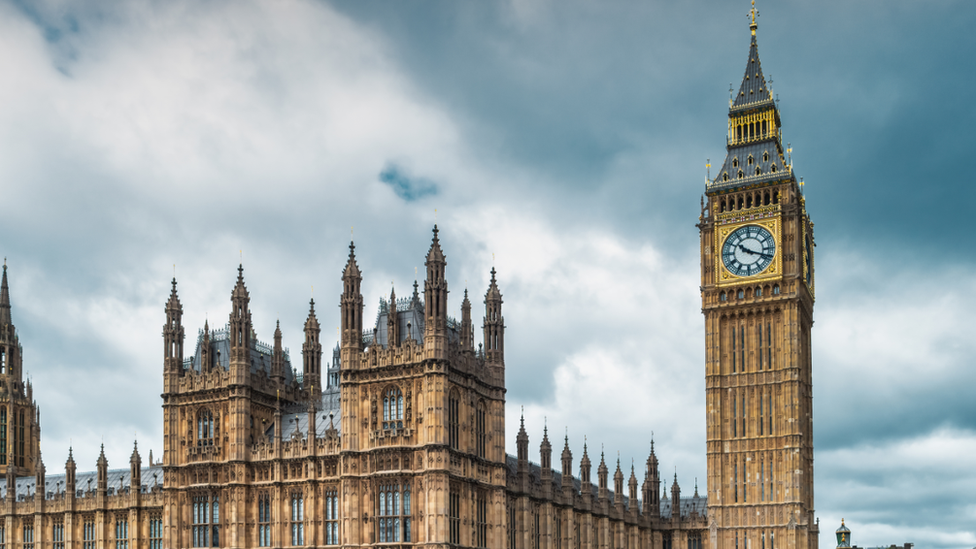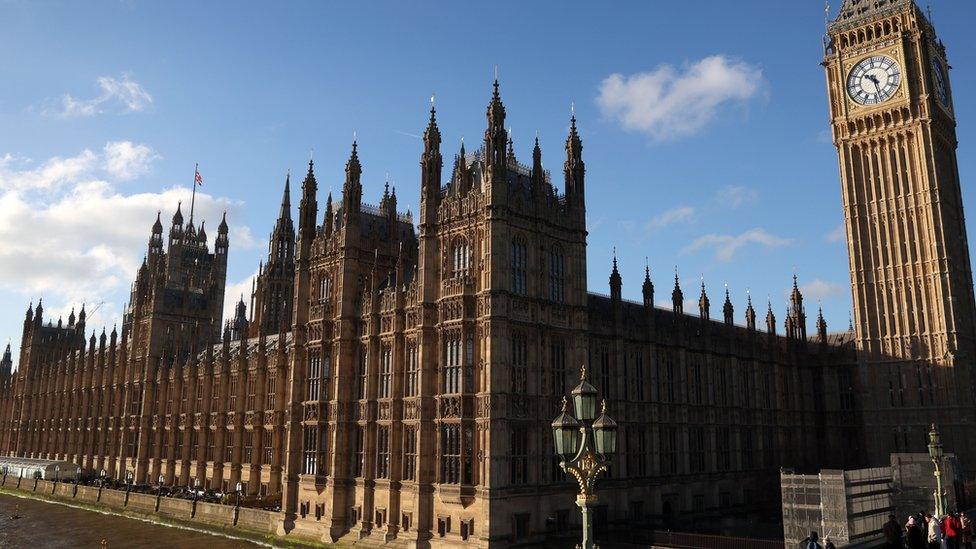Plan to ban alleged sex offence MPs from Parliament diluted
- Published

MPs accused of a violent or sexual offence would only be banned from Parliament if charged by police, under revised plans.
Under earlier proposals, MPs could have been excluded earlier in any criminal investigation, such as on arrest.
Prospect, a trade union which represents staff in Parliament, said it meant the plans had been "watered down".
A vote on the proposed ban had been due earlier this month, but was delayed.
Last month, Commons leader Penny Mordaunt told MPs that some MPs had raised "concerns" about the proposed rules.
A date for a vote on the revised policy has not yet been set.
Currently, officials do not have powers to exclude an accused MP from the parliamentary estate, and agreements to stay away are voluntary.
Under proposals unveiled in December, a risk assessment would have been triggered when the Commons authorities were alerted by police to serious allegations an MP had committed a violent or sexual offence - likely to be the moment of arrest.
A panel, including senior MPs, would then decide whether MPs under investigation posed a threat and should therefore be barred from attending Parliament.
The proposals were developed by the House of Commons Commission, whose members include Ms Mordaunt and senior MPs.
The Commission had initially proposed a criminal charge as the point at which an MP could be excluded, but changed the plans after a consultation, in which concerns were raised about the length of time that could elapse between arrest and charge.
'Retrograde step'
A government spokesperson said the Commission had since reflected on "feedback" from MPs, and had now decided to back a revised policy that would begin if an MP is charged.
They said the new proposals would "take into consideration the detrimental impact that having no voice in Parliament can have on communities."
But Mike Clancy, the general secretary of Prospect, said raising the threshold was a "massively retrograde step" that would "dismay all staff at Westminster".
He said that workers in Parliament "deserve to feel safe from credibly accused predators in their place of work".
"This would not be tolerated in any other workplace - it is to our shame that it is tolerated in the heart of our nation's democracy," he added.
Currently MPs can be banned from the parliamentary estate by police as part of bail conditions.
Parliamentary officials in charge of MPs' discipline do not have such powers and, in previous cases, informal agreements have been reached with accused MPs.
The House of Lords passed new rules in February that would allow a peer to be excluded at the point of being charged with a serious or violent offence.
A Commons spokesperson confirmed the Commission had agreed to support a new motion on the policy, and it would be for MPs to "decide whether to accept these proposals".
Related topics
- Published29 February 2024
